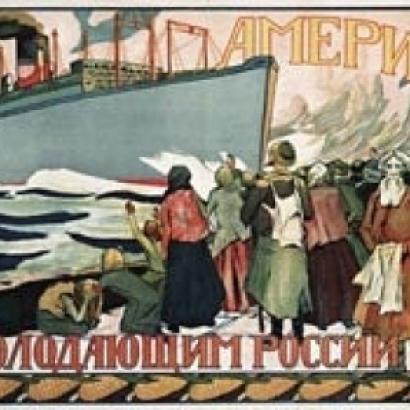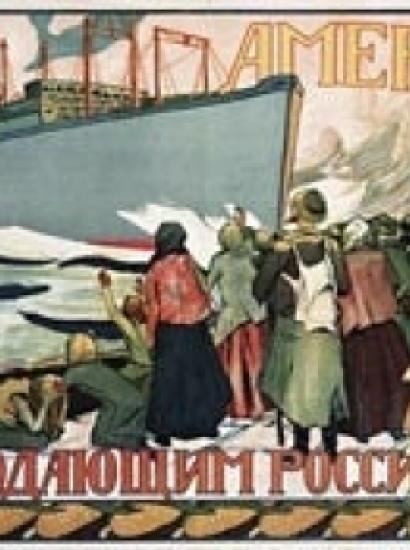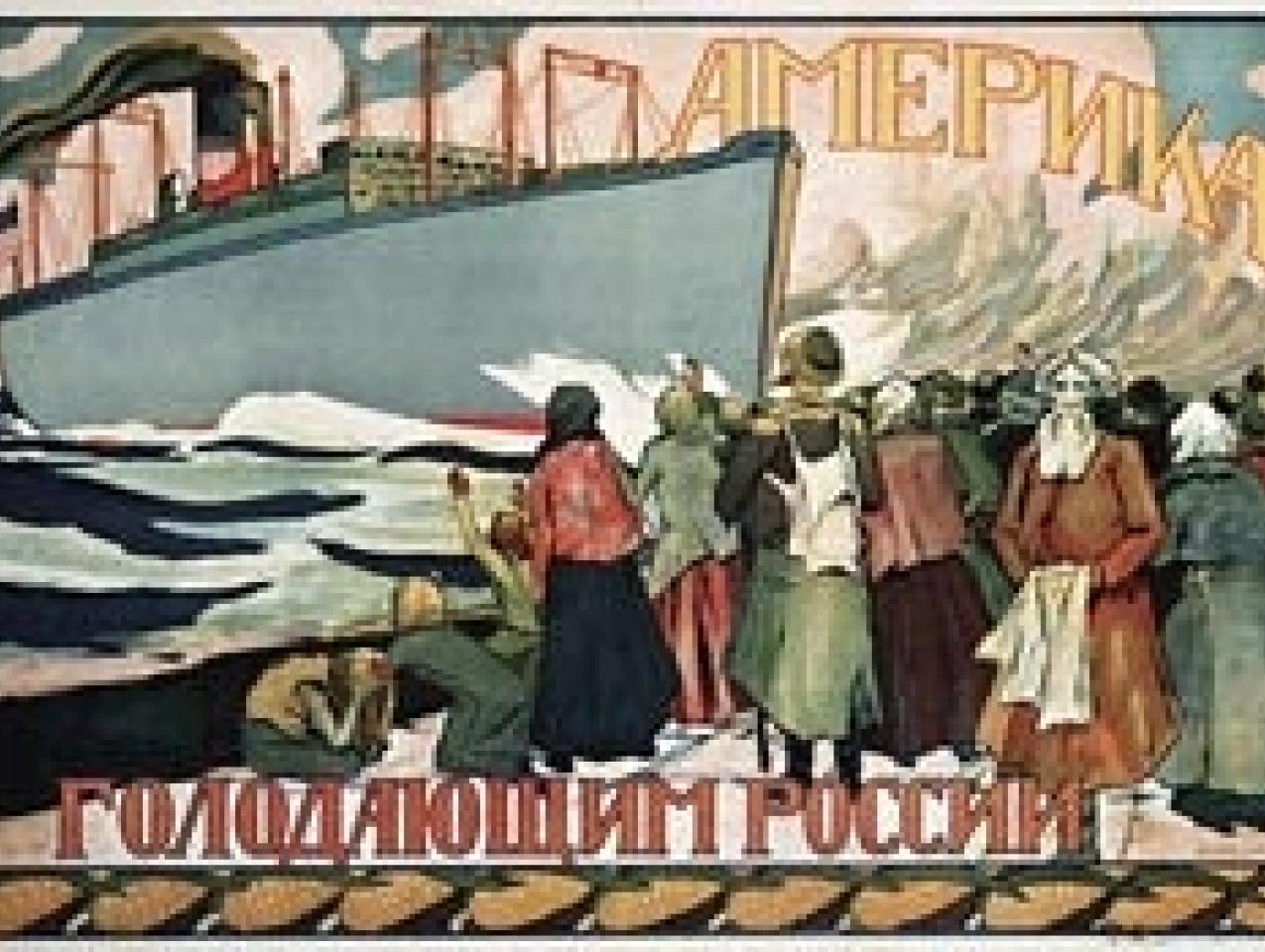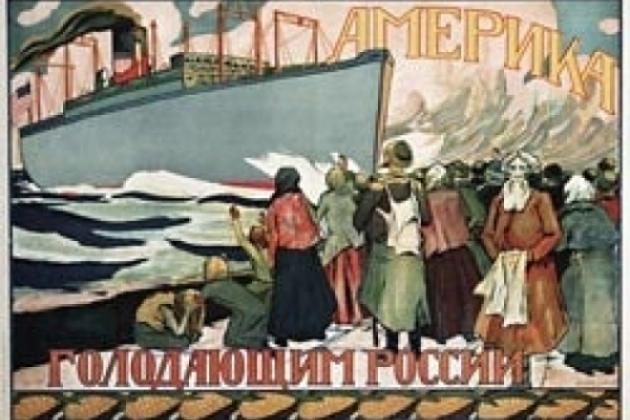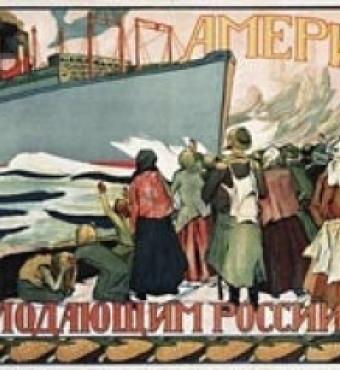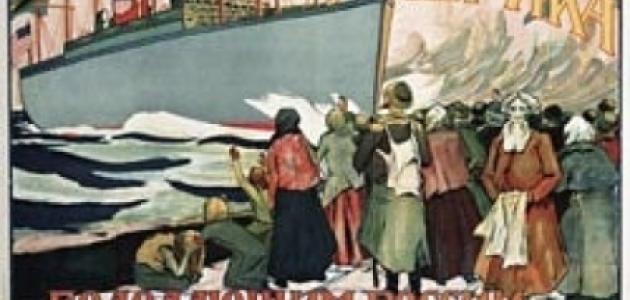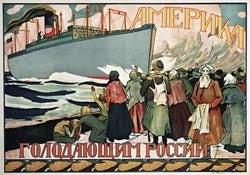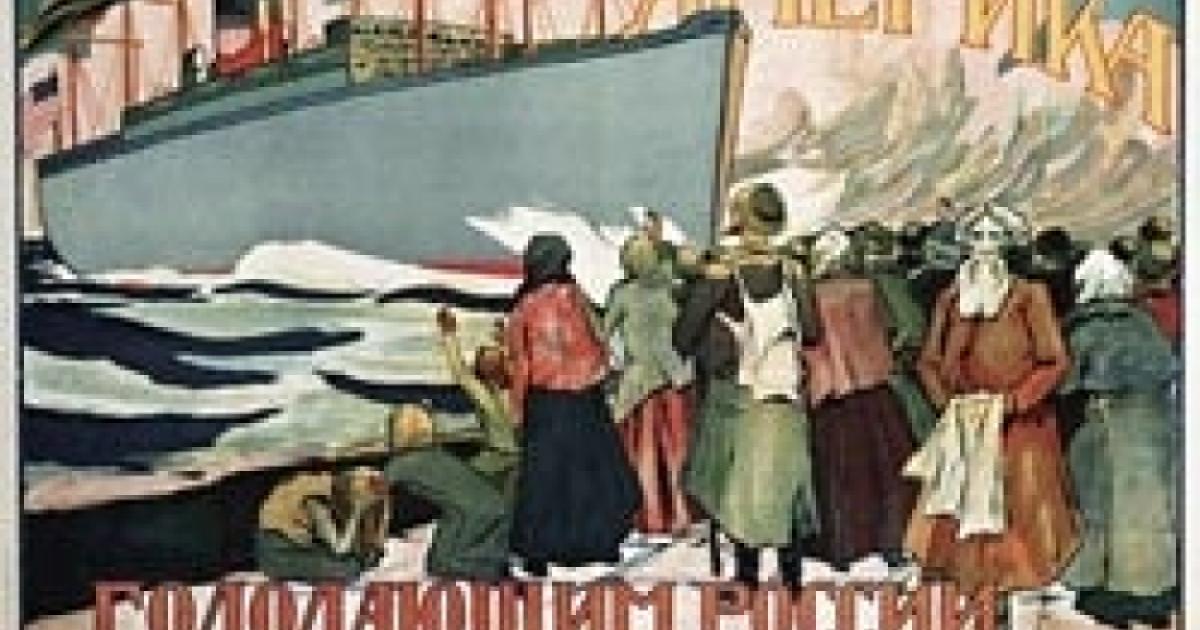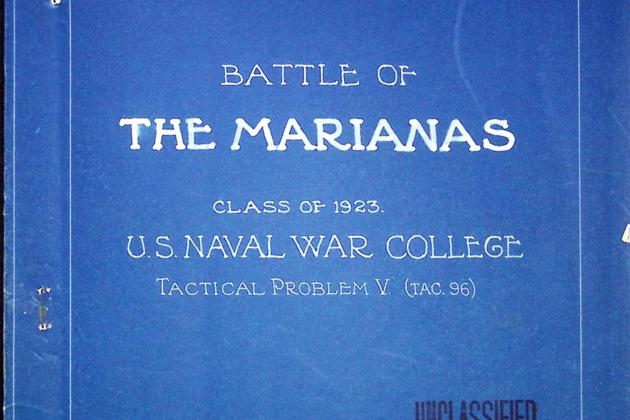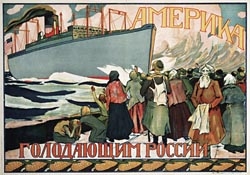
On June 26, 1921, the newspaper Pravda reported that a famine was raging in the Volga area, one even worse than the terrible famine of 1891, which had been witnessed by a young Marxist lawyer named Vladimir Ulyanov. His view at that time was that the proper role for a revolutionary socialist was not to engage in famine relief but to organize the destruction of the system that bred famines.
On June 26, 1921, the newspaper Pravda reported that a famine was raging in the Volga area, one even worse than the terrible famine of 1891, which had been witnessed by a young Marxist lawyer named Vladimir Ulyanov. His view at that time was that the proper role for a revolutionary socialist was not to engage in famine relief but to organize the destruction of the system that bred famines. In 1921, however, Vladimir Ulyanov (now known as V. I. Lenin) was the head of the Russian state and aware not only of the social disorder in the wake of great famine but also of the impact this disorder could have on the very existence of the Bolshevik regime. He admitted that the policy of forced appropriations of grain to support the workers and the army frequently meant taking from the peasants not only their entire surplus but that which was necessary to survive. A devastating drought in the spring of 1921 added to the disaster.
Philanthropy in any form was contrary to Bolshevik philosophy; however, a committee of non-Bolsheviks, including Maxim Gorky, received permission to make an international plea for famine relief. Herbert Hoover responded.
Hoover, "the food regulator of the world," according to General John J. Pershing, had spent the previous seven years distributing food. During World War I Hoover's Commission for the Relief of Belgium organized feeding the entire nation of seven million Belgians and two million northern French; when America joined the war, he was appointed the U.S. Food administrator. After the war his American Relief Administration (ARA) delivered more than four million tons of relief supplies to twenty-three war-torn European countries.
To formalize the Russian arrangements, Walter Lyman Brown, head of the ARA for Europe, and Maxim M. Litvinov, deputy chairman of the People's Commissariat for Foreign Affairs, met in Riga, Latvia. The ARA operated independently in the many countries in which it provided relief, but Bolshevik suspicion of political motivation on the part of the ARA almost halted the talks. On August 21, 1921, after about three weeks of difficult negotiations, the "treaty" was finally signed with all the formalities of a historic diplomatic event.




